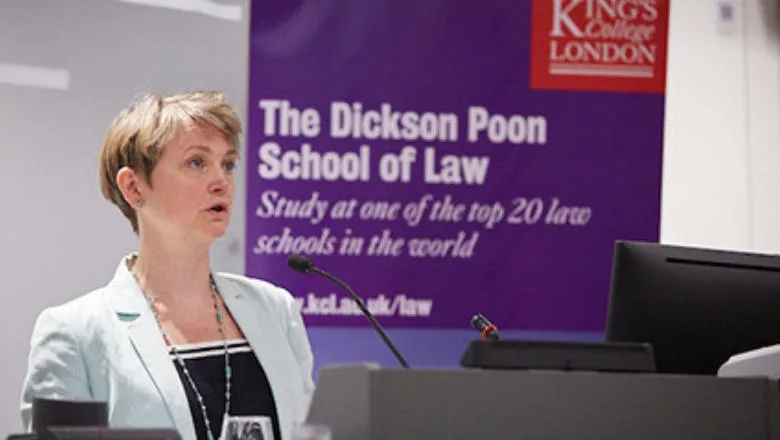23 May 2018
European Extradition After Brexit: The Future of the European Arrest Warrant in the UK
Estelle Marks, PhD Researcher, The Dickson Poon School of Law
A high level workshop held at King's has concluded that the UK is drifting towards a European security crisis that will dramatically degrade the capacity of the police and criminal justice system to keep citizens safe and will undermine justice for victims.

The UK is drifting towards a European security crisis that will dramatically degrade the capacity of the police and criminal justice system to keep citizens safe and will undermine justice for victims. This is the stark conclusion of a high-level workshop held on May 9 at King’s College London, involving leading policy makers, prosecutors, detectives and academics.
Following on from a linked workshop held last March which discussed the implications of Brexit for European Law Enforcement Cooperation more generally, this year’s workshop focused specifically on the issue of Extradition to and from the UK once the UK leaves the European Union in 2019.
Workshop participants heard from a panel of prosecutors, which included representation from all three UK jurisdictions and the Republic of Ireland. This was followed by a keynote speech from Lord Kirkhope, Conservative peer, member of the Home Affairs Sub-Committee and former Conservative spokesperson on Security and Justice to the European Parliament.
In the afternoon a second keynote speech was delivered by Yvette Cooper MP, Chair of the Home Affairs Select Committee, which has recently reported on UK-EU security cooperation after Brexit. This rousing talk was followed by Harriet Deane, a specialist for the Home Affairs Committee and coauthor of a ‘UK in a Changing Europe’ report on post-Brexit law enforcement cooperation.
The event included considerable audience participation and concluded with a roundtable discussion involving all the day’s attendees. Some very serious concerns were raised, including the possibility of a nationality bar to extradition from some countries during any transition period; the possibility of the EAW operating without the UK having any access to the Schengen Information System which supports its distribution; the effect of ongoing legal uncertainty on current extradition cases; and the UK’s future status in relation to data sharing with the EU.
One of the most troubling themes articulated by attendees from across the spectrum of law enforcement and criminal justice is the difficulty that the current uncertainty is causing when they attempt to prepare for the future, whether in contingency planning or in training and recruitment of staff.
Attendees included representatives from various UK police forces, the CPS, the Crown Office Scotland, Crown Solicitors Northern Ireland, PPSNI, the DPP Republic of Ireland, the European Commission, the College of Policing, and the NPCC.
Professor of Criminology & Criminal Justice, Ben Bowling said: ‘Although British and EU negotiators agree that security cooperation is in the interests of safety for everyone in Britain and Europe, there are still no concrete proposals for how this will work.
‘For example, how information will be shared among police forces, whether the UK will remain in the European Arrest Warrant and if not how extradition will work post-Brexit.’
He suggests that without an agreement, the law will revert to the 1957 Extradition Treaty which would be much more costly, inefficient and too slow to provide safety to citizens and justice for victims.
The workshop participants agreed that negotiating a bespoke deal may be possible but any negotiation will face significant legal complexities. Time is running out and with no concrete proposals yet on the table, the possibility that security cooperation will grind to a halt has major implications for justice and security.
European Extradition After Brexit: The Future of the European Arrest Warrant in the UK was organised by The Dickson Poon School of Law and its Centre of European Law and supported by the Economic and Social Research Council.
Pictures are available on the school Flickr.
A full report on the workshop is in preparation.
